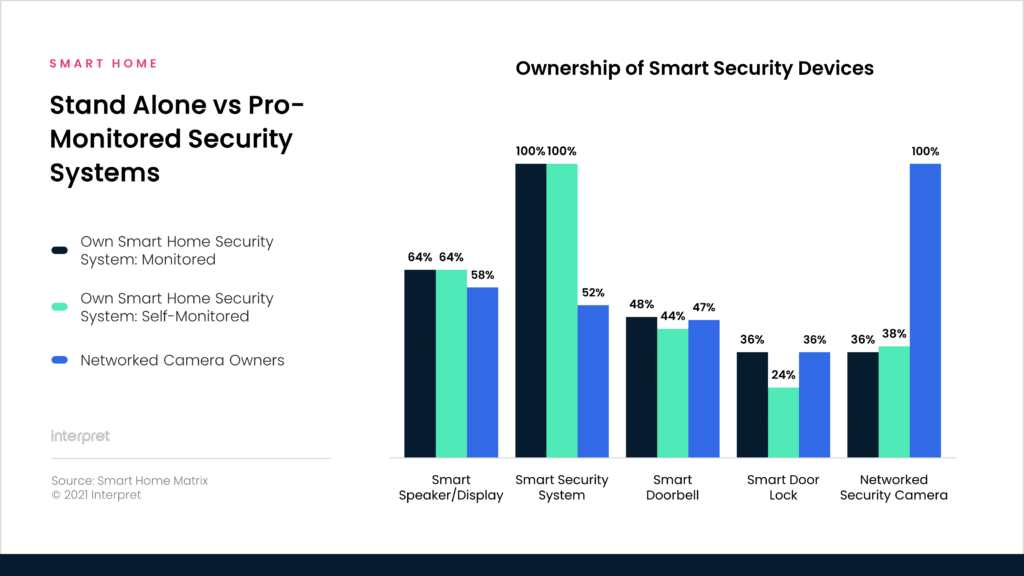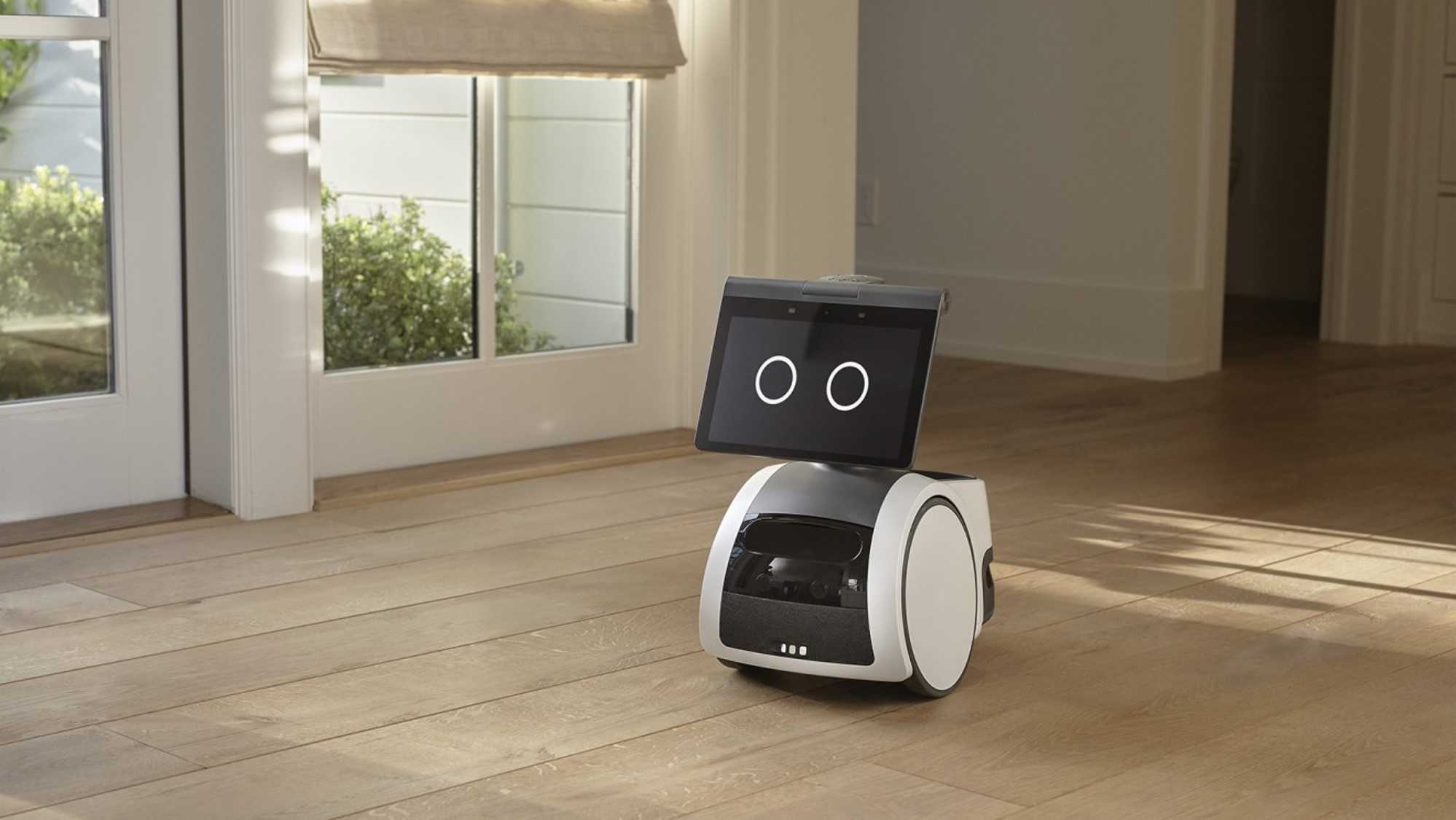At Amazon’s latest product announcement event, the tech giant underscored its flair for creating new product categories. The company revealed a new home robot, Astro, that sells for $999. The autonomous 20-pound robot not only features a display screen for communications, but also has a camera mounted on a telescoping base – enabling a remote user to see on top of counters, tables, or over furniture. Beyond cameras, Astro utilizes sophisticated AI along with voice-recognition software, face-recognition software, and mapping technology, which all combine to learn about household members’ habits.
If having a roving device is not to a customer’s liking, the Always Home Cam is a video camera mounted on a drone that can patrol the home by flying preset routes. It will debut at $249. These two devices extend Amazon’s popular Ring security family and move the focus of home security from monitoring the perimeter to viewing inside the home. The company also announced that its Ring cameras can be used to activate a professionally staffed security monitoring center that can connect a resident with emergency responders.
“Amazon’s extended home security line addresses multiple use cases: monitoring outside of the building envelope, keeping tabs on people, pets, and belongings inside the home, and connecting to authorities in case of emergency. All of Amazon’s security line is designed to be self-installed, further building upon a consumer segment that wants home security at a savings and is willing to self-install to save,” said Stuart Sikes, Senior VP at Interpret.
A potential downside, as CNN points out, is deepened concern over privacy. NYU School of Law fellow Albert Fox Cahn told CNN that Amazon’s new products “give a disturbing new reality where it’s impossible to escape the tech giant’s roving drones within our own home.”
According to Interpret’s Smart Home Matrix™ quarterly survey of smart home product owners, the device ownership profiles of those owning stand-alone security cameras is similar to owners of pro-monitored security systems, with around 35% of both reporting ownership of smart doorbells, smart door locks, smart thermostats and garage controllers. The primary difference between these groups of owners is that pro-monitored security owners have higher incomes, more years of education, and children under age 18.
With security giant ADT’s partnership with Google to design the next intelligent home security platform, expect the category to further change as new innovations in both devices and artificial intelligence provide solutions unlike anything seen in market before.





